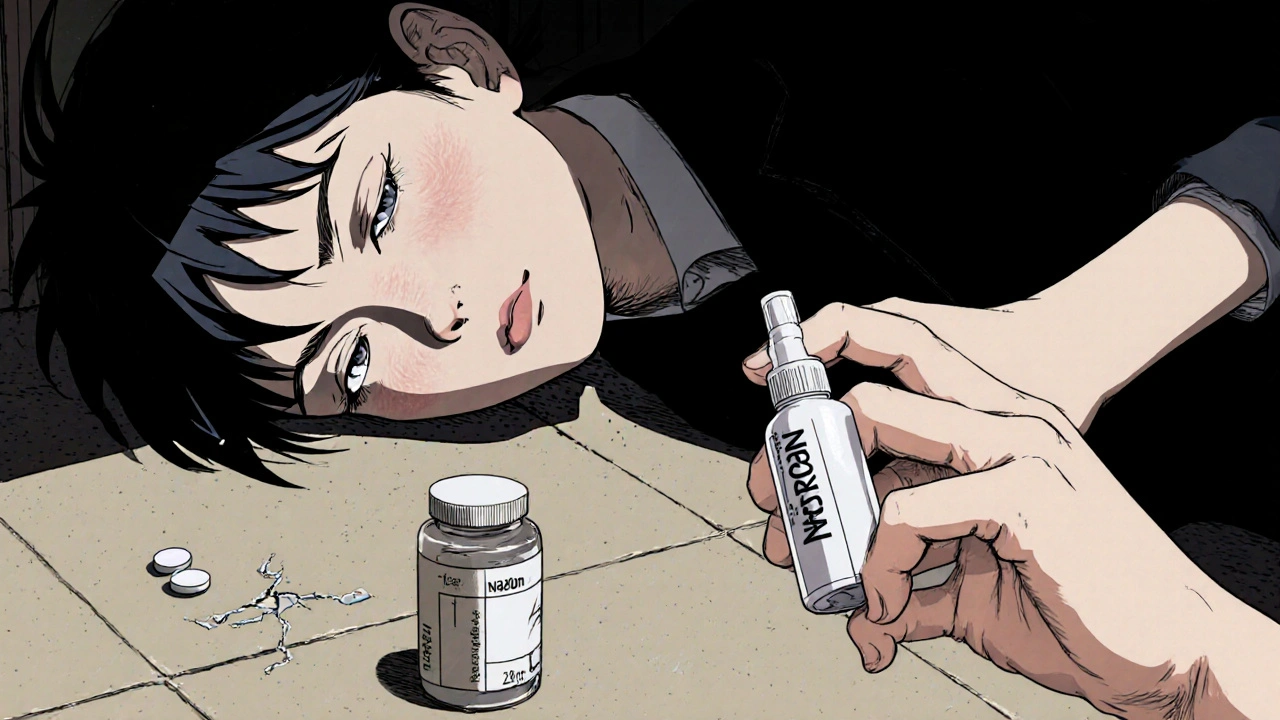Opioid Overdose Symptoms: What to Recognize and Do Immediately
When someone overdoses on opioids, a class of drugs that include prescription painkillers like oxycodone and illegal substances like heroin and fentanyl. Also known as narcotics, they slow down your breathing and can stop it entirely. This isn’t just a risk for people who use drugs recreationally — it happens to patients taking prescribed pain meds, too. The biggest danger? opioid overdose symptoms often sneak up quietly. You might not realize someone is in trouble until it’s too late.
Here’s what to watch for: blue or purple lips and fingernails, pinpoint pupils, slow or shallow breathing, gurgling sounds like they’re choking, and unresponsiveness even when shaken or shouted at. These aren’t vague signs — they’re clear red flags. If someone is unresponsive and breathing less than once every 5 seconds, they’re likely overdosing. Fentanyl, a synthetic opioid 50 to 100 times stronger than morphine is now the most common cause of fatal overdoses because even a tiny amount can shut down breathing. And it’s often mixed into other drugs without the user’s knowledge. That’s why someone who’s never used opioids before can overdose on what they thought was just a regular pill.
Naloxone, a medication that can reverse an opioid overdose in minutes is the best tool we have. It’s safe, easy to use, and works even if you’re not sure what drug caused the overdose. Many pharmacies now sell it without a prescription. Keep it in your car, your bag, or your medicine cabinet — just like a fire extinguisher. Time matters. The longer breathing stops, the more brain damage happens. Calling 911 is critical, but giving naloxone while waiting can save a life.
Overdose isn’t just about the drug — it’s about context. Mixing opioids with alcohol, benzodiazepines, or sleep aids multiplies the risk. People with chronic pain, mental health conditions, or a history of substance use are at higher risk. But anyone can be affected. You don’t need to be a drug user to be at risk — you just need to be around someone who is.
The posts below give you real, practical information on what to do when someone overdoses, how naloxone works, why fentanyl is so dangerous, and how to protect yourself or someone you care about. You’ll find advice on recognizing early warning signs, using emergency kits, and understanding the hidden risks in everyday medications. This isn’t theoretical — it’s life-saving knowledge you can use today.
Signs and Symptoms of Medication Overdose You Should Recognize
Learn the key signs of medication overdose - from opioid to stimulant reactions - and what to do immediately if someone is overdosing. Early recognition saves lives.

